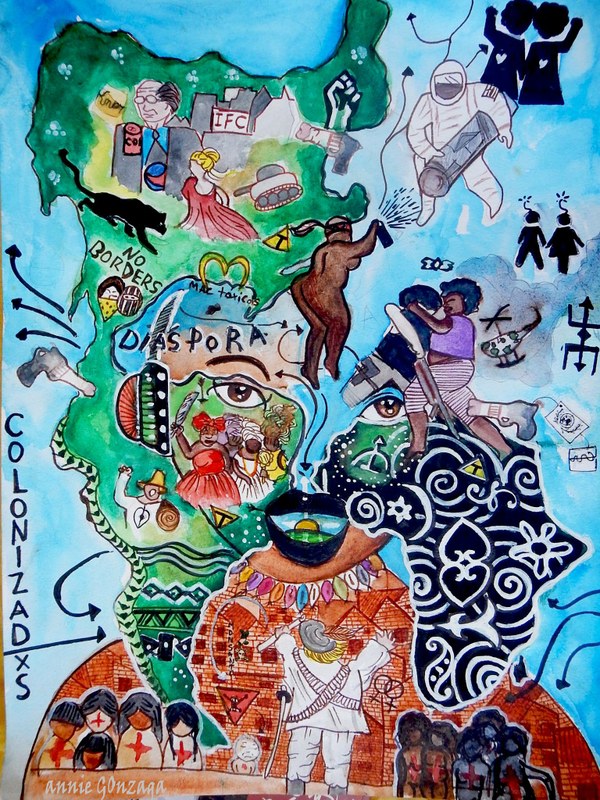Ort | Akademie der bildenden Künste Wien, Atelierhaus, Lehargasse 8, 1060 Wien, 1. OG Atelier Süd
-
Guest Lecture by Yuderkys Espinosa Miñoso organized by Marina Grzinic, Post Conceptual Study Program. Moderation after the lecture by Marissa Lobo. Translation from Spanish into English by Ronja Vogl.
-
It is about responding to the key question, if we are to propose a genealogical method to be applied to the feminist field, then it translates into: How did we become the feminists who we are? What are the possible conditions that allowed feminism to believe in what it believes, to say what it says, to do what it does, in a region that is geopolitically determined by its status as a “third world” that drags along it the colonial trauma, as a condition of being what we are today.
-
From these questions emanate the possibility to reflect upon some key issues regarding feminism in Latin America and its history of dependency. Not a Latin American feminism but feminism in Latin America. We see that there is no universal feminism, as it is proposed by the heritage of the Eurocentric modernity. If in the statement that feminism encounters modernity, we do not encounter any surprises, nevertheless we have to ask how you can be prepared/ willing to follow it in regions of the world, where modernity reveals itself only as what it is: racist, Eurocentric, capitalist, imperialist and colonial.This argument illuminates the different interests between feminism, and antiracist, anti and de-colonial fights in the region. It allows us to reveal the hidden pattern of feminist fights and its commitment to coloniality.
-
Coming from the proposal of a genealogy of experience I want to present coloniality, racism and the euro-centrism of the feminist reason and thus to open up the possibility to draw attention to other forms of fights and commitments that come from the margins in order to face these reason.
CV Yuderkys Espinosa Miñoso
Is a thinker, activist, writer and a lecturer, committed to radical movements’ flows against racism, (hetero) patriarchy and coloniality. She was born in an Afromestizan family and grew up in the popular neighborhoods of Santo Domingo, in the Dominican Republic. She used to live thirteen years as a migrant in Argentina and currently lives in Colombia. From there she mobilizes and visits the territory of Abya Yala. She is engaged in a project of political formation and development of critical, anti-racist feminist and de-colonial Latin American thinking. Her best known works are the articles: “Ethnocentrism and coloniality in Latin-American feminism: complicity and consolidation of feminist hegemonies in the transnational space” (2009); “The challenge of the Latin-American feminism in the actual context” (2010): The future is already past: a critic of the idea of progress in the narrations of the liberation of sex-gender and queer identities in Abya Yala (2015); and her book: Writings by a dark lesbian (2007).
CV Ronja Vogl, born 1978 in Berlin, lives and works in Vienna and Mexico City, considers herself as a world citizen. Main focuses of her artistic work: migration, refuge/escape, critical analysis of society processes. www.ronjavogl.com
CV Marissa Lobo, artist, activist and writer based in Vienna.
Presentation done in the context of and in collaboration with Njideka Stephanie Iroh and Marissa Lobo project Bodies of Knowledge – Multiplying Marginalized Subjectivities of Utopia through Art and Storytelling. Sponsored by SHIFT 2015.
_
*Image by Annie Gonzaga Lorde
